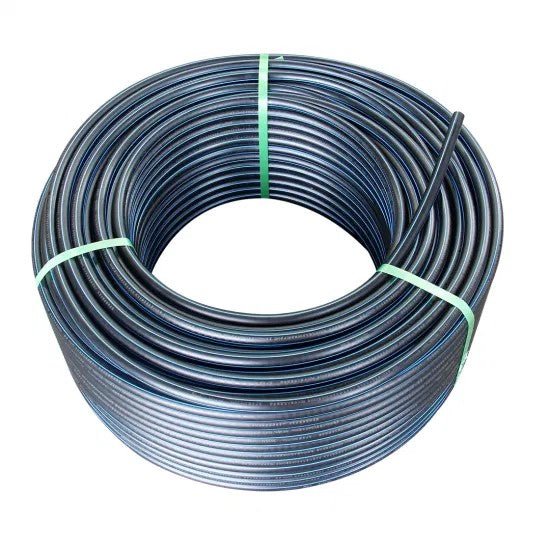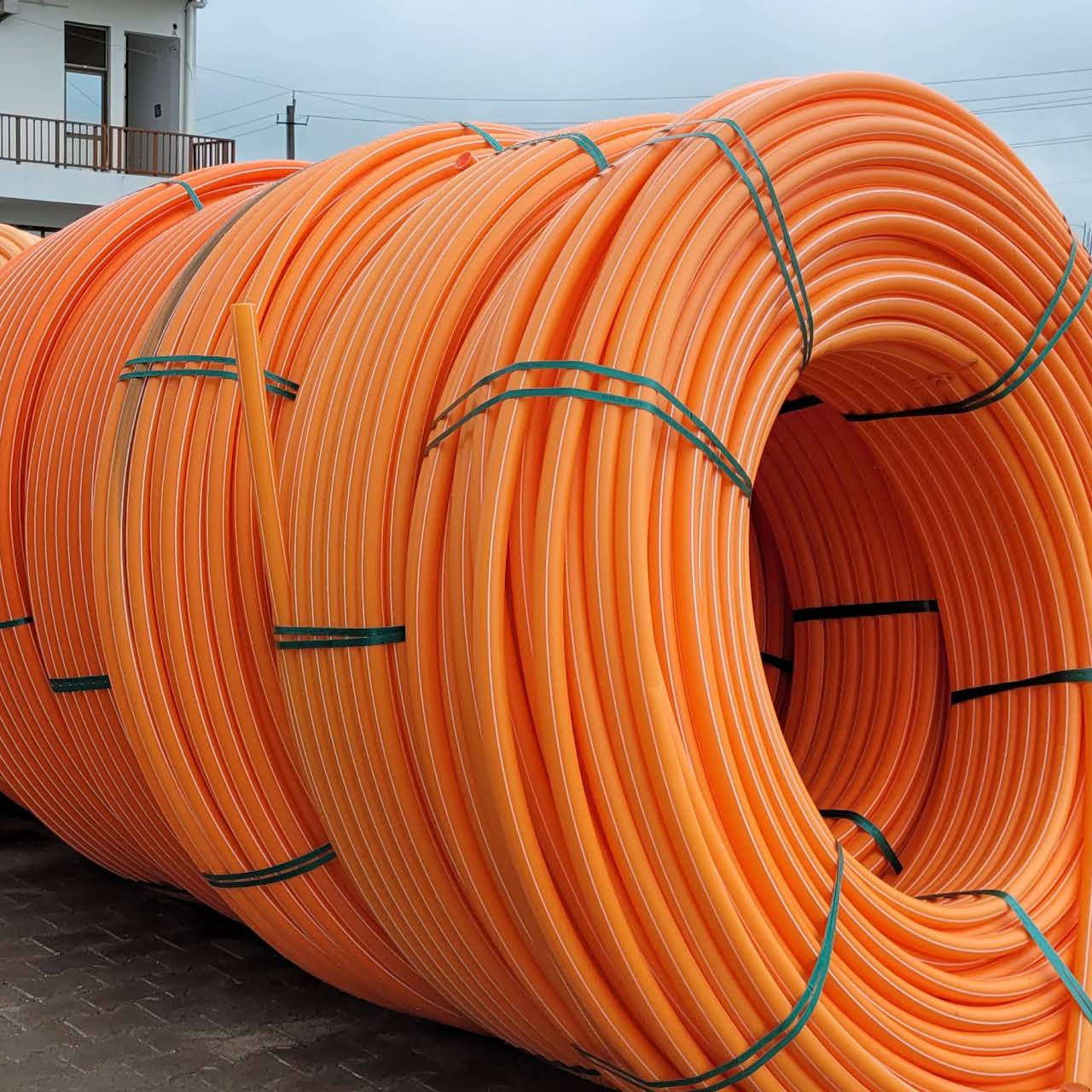How Midland TX HDPE Pipe Fittings in Stock Save Time
Wiki Article
Recognizing the Key Benefits of HDPE Pipe for Water and Wastewater Management
Making use of HDPE pipeline in water and wastewater management provides various advantages that merit factor to consider. Its phenomenal resilience and long life-span make it a favored selection for many jobs. Furthermore, the product's resistance to deterioration and chemical damages enhances its reliability in various environments. However, the advantages expand past just long life and resistance. Exploring its cost-effectiveness and environmental impact exposes a lot more engaging factors for its prevalent fostering in contemporary facilitiesPhenomenal Sturdiness and Durability

HDPE pipeline sticks out for its outstanding sturdiness and durability, making it a preferred option in water management systems. Constructed from high-density polyethylene, these pipes can endure significant pressure and tension, making sure trustworthy efficiency gradually. Their robust nature allows them to endure severe ecological problems, including temperature level fluctuations and soil activities, which can trigger other products to stop working.
The life-span of HDPE pipelines often goes beyond 50 years, providing an economical remedy for communities and markets alike. Furthermore, the material's light-weight homes simplify installation, minimizing labor prices and durations. This sturdiness lessens the requirement for regular repair work or replacements, further enhancing its financial appeal.
In water monitoring applications, the reliability of HDPE pipes suggests less disruptions and boosted service continuity, making them essential to lasting framework development. The combination of sturdiness and long life solidifies HDPE's duty as a foundation in reliable water administration services.

Resistance to Rust and Chemical Damage
While numerous products surrender to deterioration and chemical damages in time, HDPE pipes show remarkable resistance, making them excellent for different water monitoring applications. This durability originates from the molecular framework of high-density polyethylene, which is inherently non-reactive and does not wear away like steels or weaken from exposure to extreme chemicals. Because of this, HDPE is extremely reliable in environments with aggressive materials, such as wastewater systems that might consist of acids, bases, and natural solvents.
Furthermore, HDPE pipes can stand up to ecological factors such as soil acidity and saline conditions, better boosting their viability for diverse applications (American Plastics HDPE Pipe Manufacturing). Their capacity to maintain structural honesty gradually lowers the danger of leaks and failings, which is essential in making sure the safety and dependability of water circulation and wastewater monitoring systems. The resistance to deterioration and chemical damage markedly contributes to the total efficiency and longevity of HDPE piping options.
Cost-Effectiveness and Economic Advantages
When considering the monetary effects of water management systems, the cost-effectiveness of HDPE pipelines becomes apparent. These pipelines use lower installation and maintenance costs contrasted to standard materials like steel or concrete. Their light-weight nature streamlines transportation and installation, causing lowered labor expenses. In addition, HDPE pipelines display a long life-span, commonly exceeding 50 years, which translates to fewer replacements and lasting cost savings.Additionally, the resistance of HDPE to corrosion and chemical damage lessens the need for pricey repair services and substitutes. The pipes additionally sustain reliable water circulation, reducing power expenses connected with pumping systems. By mitigating leakages and water loss, HDPE pipes add to significant financial advantages for municipalities and industries alike. On the whole, the first investment in HDPE piping can generate substantial economic returns over the life expectancy of the water monitoring system, making it a prudent selection for lasting framework development.
Environmental Sustainability and Lowered Impact

Convenience and Adaptability in Setup
Due to their distinct buildings, HDPE pipelines supply exceptional adaptability and versatility in installment, making them appropriate for a variety of applications. Their light-weight nature permits much easier handling and transportation, reducing labor prices and setup time. HDPE pipes can be bent and shaped to fit different surfaces and task requirements, which is especially helpful in challenging environments.Furthermore, their resistance to corrosion and chemical damages enables installment in diverse settings without the need for specialized safety coverings. The capacity to fuse joints develops a continual, leak-free system, enhancing the total stability and dependability of the installation. HDPE's flexibility also fits ground activity, reducing the risk of damage in areas prone to shifting soil. On the whole, these attributes make HDPE pipes not just functional however additionally a recommended choice for water and wastewater administration systems.
Frequently Asked Inquiries
Just How Does HDPE Pipeline Compare to PVC in Water Administration Applications?
HDPE pipe provides exceptional flexibility, resistance to corrosion, and durability contrasted to PVC. Its lighter weight promotes simpler installation, while its long lifespan lowers replacement expenses, making HDPE a recommended selection in water management applications.What Is the Life Expectancy of HDPE Piping Under Common Problems?
Under regular conditions, HDPE pipes can have a life expectancy varying from 50 to 100 years. Their longevity and resistance to corrosion contribute to their long-lasting efficiency in numerous applications, making them a dependable choice for facilities.Are HDPE Water Lines Recyclable After Their Solution Life?
Yes, HDPE pipelines are recyclable after their life span. custom hdpe pipe manufacturing Midland TX. They can be refined and repurposed into new products, significantly minimizing environmental influence and advertising sustainability within the sector, making them an eco-friendly choice for piping solutionsWhat Is the Installation Refine for HDPE Piping?
The installment procedure for HDPE pipes involves website prep work, trenching, pipe combination or mechanical joining, backfilling, and stress screening. Appropriate strategies assure a sturdy and effective system for delivering water and wastewater successfully.Can HDPE Pipeline Be Utilized for Both Drinkable and Non-Potable Water Systems?
Yes, HDPE pipelines can be utilized for both drinkable and non-potable water systems. Their convenience, toughness, and resistance to rust make them suitable for numerous applications, guaranteeing safe and reliable transport of water in various contexts.Report this wiki page